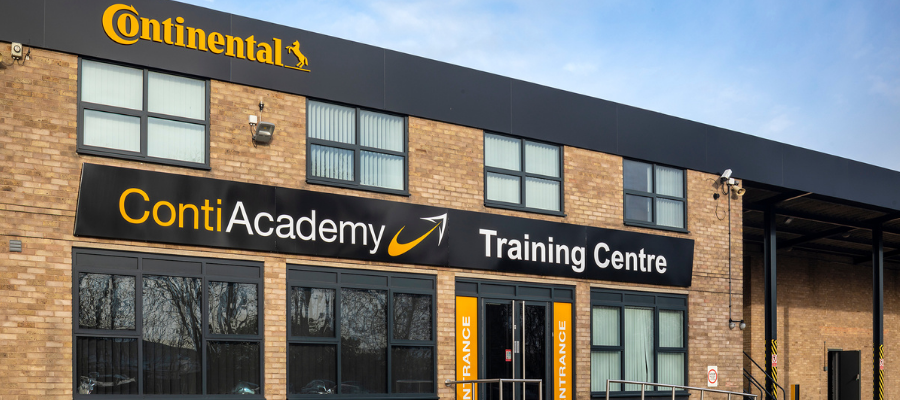🕒 Article read time: 2 minutes
Training to drive fleet efficiencies
Sponsored content

Gwyn Fennell, Technical Service and Training Manager, Continental Tyres:
When it comes to raising operational standards across the road transport industry, you would be hard pushed to find anyone who doesn’t respect the positive role of training.
A VITAL PART OF STAFF DEVELOPMENT
Training is now, quite rightly, built into staff development plans across the industry. For drivers, this helps maintain practical skills and stay up to date with safety and vehicle technology knowledge to meet CPC hours. For transport managers and office-based staff, training ensures safe operational practices, and helps drive efficiencies, with staff learning how to maximise fuel use, and make best use of the truck’s time on the road.
FITTING TYRES CORRECTLY
When it comes to training around tyres, however, this is often considered the sole domain of tyre fitters. After all, the primary role of a fitter is to make sure tyres are safely replaced, either as part of scheduled servicing, or following damage, and even blowouts. Indeed, the ContiAcademy training facility in Lutterworth provides tyre fitter training to suit the individual need of these fitters, including the NTDA’s mandatory REACT safety training (with classroom elements now delivered online) to hundreds of tyre fitters each year.
INFLUENCING 40% OF OPERATING COSTS
But there is more to tyre knowledge than learning safe practices around fitting. Tyres play a huge role in fleet efficiency and are directly responsible for 5% of a fleet’s total operating costs. What is more, tyres have an influence over a huge 40% of overall operating costs, because of the effect tyre rolling resistance has on fuel use and subsequent maintenance costs.
INSIGHTS INTO TYRE MANAGEMENT
With this in mind, there is logic in other transport stakeholders understanding a little more about their tyres. Fleet managers, responsible for managing tyre use, setting policy and negotiating supply contracts, would do well to find out how they can maximise tyre use as a route to improving fleet efficiency.
This is even more important as tyres become more specialised for application. Fuel efficient tyres are designed to lower rolling resistance and so save fuel, however in the wrong application such tyres won’t perform, costing fleets money.
AN EDUCATION IN TYRE HUSBANDRY
ContiAcademy regularly creates bespoke courses for a range of fleet operators, whether Continental customers or not, to drive such knowledge, and therefore increase efficiencies. It works with fleets who may not require tyre fitters on contract, but who need to train drivers or engineers in basic tyre husbandry such as understanding how to get the most from their tyres by maximising service life, limiting damage and premature removal and optimal maintenance. This is equally beneficial for operators of light commercial vehicle fleets as well as heavy duty vehicle fleets.
Just as ContiAcademy trains tyre fitters so they can understand service level agreements, to fully appreciate how the tyres they fit will be used, it sees real value in arming fleet managers with information on how tyres work. The broader their understanding, the more chance they have to drive down operational costs and ensure they get the best value out of the tyres for their fleet – knowledge is power, after all.
Find out more about ContiAcademy remote and classroom learning here: https://www.continental-tyres.co.uk/truck/contiacademy/about
Published On: 22/04/2021 17:00:49

Comments Section
If you are a Logistics UK member login to add comments.